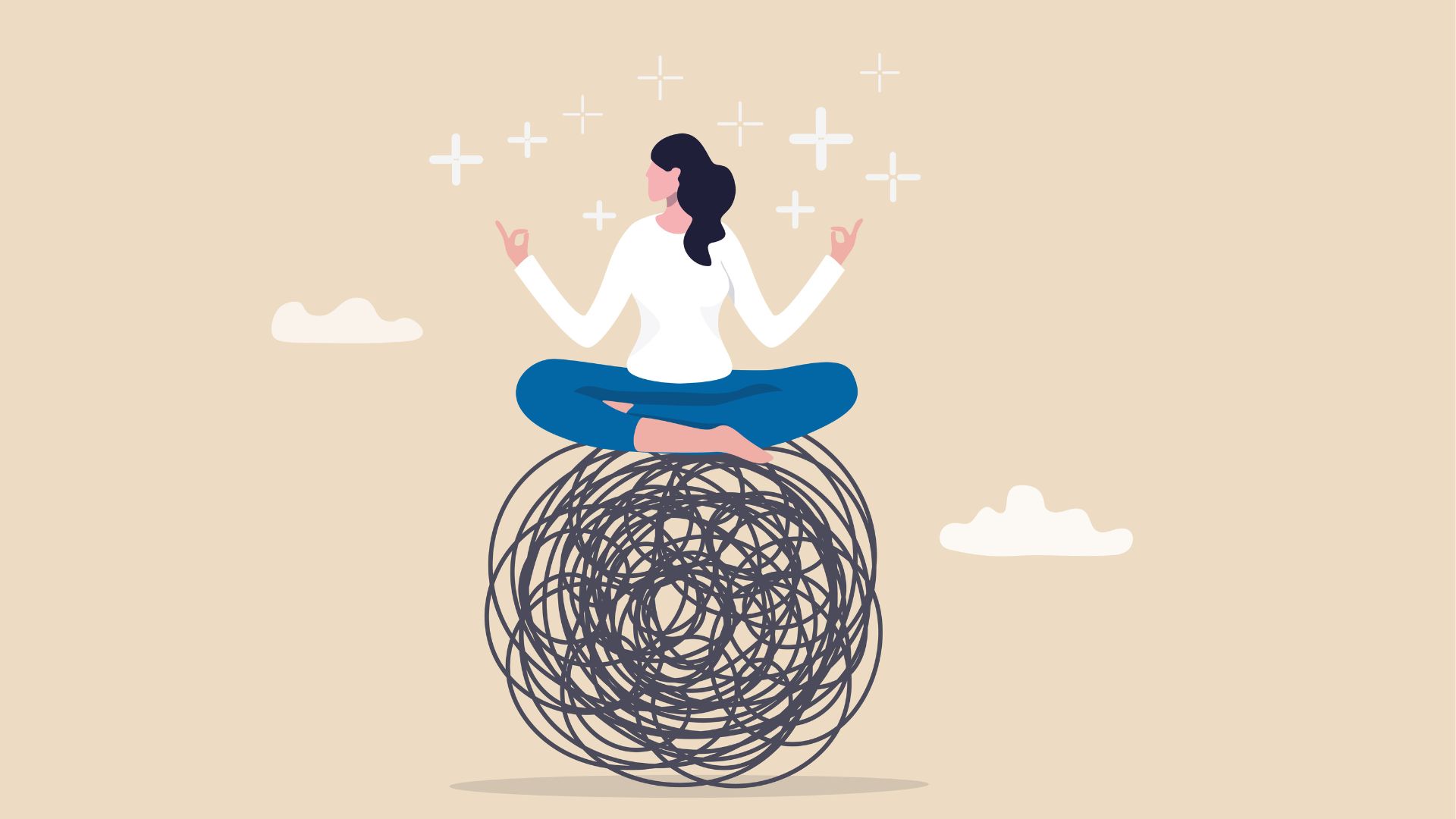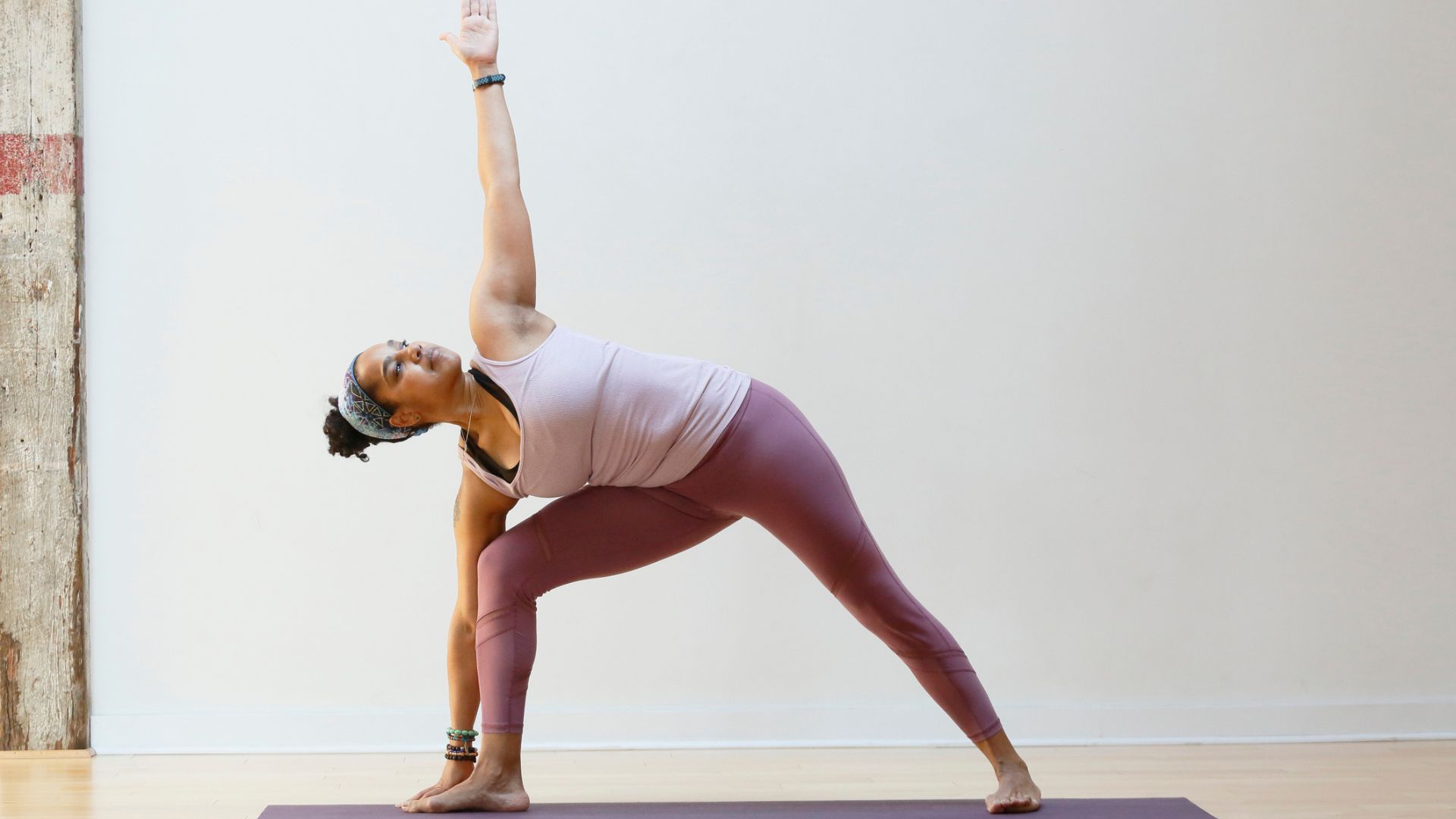How to lower cortisol levels - 7 expert tips to reduce stress
Learning how to lower cortisol levels is the key to dealing with the root of stress. Here, hormone specialists and GPs reveal the right ways to do it


Cortisol is the primary stress hormone in the body, released during times of heightened anxiety. If you're feeling under pressure lately and the effects of stress are getting to you, it makes sense to want to know how to lower cortisol levels for a better outlook on life.
Cortisol surges flag that we're in danger - whether real, like a physical threat, or imaginary, like a demanding work email - and help to keep us safe. We need it for various essential bodily functions, like maintaining our metabolism and regulating blood sugar levels and blood pressure. But you may start to experience the signs of high cortisol in women if you have too much, which tend to be negative.
Although high cortisol levels can have numerous causes, it's most commonly caused by stress. By reducing stress, you can learn how to lower cortisol levels. Here, woman&home speaks to several hormone specialists and GPS about exactly how to do that with simple lifestyle changes.
How to lower cortisol levels
1. Move your body
One of the best ways to lower your cortisol levels and reduce stress is to take up regular exercise. "It’s great for the body and mind, it can reduce your risk of cardiovascular disease, counteract depression, and dissipate stress, all through the balancing of stress hormones," says Dr Natasha Fernando, a GP and hormone specialist.
"This doesn't mean always sweating your stress out in a spin class though. You can move your body in a way that feels good to you. Sometimes, the less intense the better when you’re stressed, as overdoing it as a form of releasing stress could lead to overtraining and exercise burnout – which we don’t want," she says.
For example, you could try yoga for beginners and pick up a daily habit of doing yoga every day. As it's a low-impact exercise, you're unlikely to feel overworked and tired after a session, meaning you can do it more regularly. Otherwise, step outside and go walking for 30 minutes a day. It's all you need to start producing endorphins and reap the benefits of the fresh air.

Dr Natasha Fernando is a practising GP, with over 12 years experience with the NHS. She completed her undergraduate medical training at the University of Cambridge and Imperial College London, and has a Diploma in Lifestyle Medicine.
As medical director of Medichecks, Dr Natasha Fernando drives the continuous improvement of service quality and helps safeguard high standards of care. She gives clinical support to the team of reporting doctors, ensuring excellent standards in providing customer-centred, evidence-based advice.
2. Practice meditation
Meditation isn't for everyone and if you're feeling under pressure, it can be difficult to get in the headspace for mindfulness exercises. However, hormone specialist Mike Kocsis says it's one of the best ways to lower your cortisol levels if you can do it.
Sign up to our free daily email for the latest royal and entertainment news, interesting opinion, expert advice on styling and beauty trends, and no-nonsense guides to the health and wellness questions you want answered.
"Mindfulness practices such as meditation have been shown to suppress the production of cortisol and increase the body’s levels of the feel-good hormone serotonin," he says.
You can follow a session on one of the best meditation apps to get started, for example, or step outside and try some walking meditation if sitting-down meditation isn't for you.
Mike Kocsis is an expert on hormones, with over 20 years in the healthcare sector and much of this time working with people who have hormone imbalances. He is also the medical case manager for Balance My Hormones.
3. Do something you love
Just 10 minutes a day of doing something you love can make a world of difference to your stress levels, GP and hormone specialist Dr Sohère Roked reveals.
"Whether that’s walking in the park or doing some art, anything that brings you joy no matter how big or small, just 10 minutes a day, can make a big difference," she says.
Research from University College London suggests that a creative hobby (alongside exercise activities) has some of the most promising benefits when it comes to learning how to lower cortisol levels. The study, which took place during the Covid-19 lockdown, found that spending more time gardening, woodworking, doing DIY and arts and crafts were associated with reductions in symptoms of depression and anxiety and improvements in life satisfaction scores. Watching television of any kind had the opposite effect.

Dr Sohère Roked is a GP, functional medicine and hormone doctor. She specialises in combining bioidentical and body-identical hormones and functional medicine to facilitate hormone optimisation. Dr Roked believes that hormonal balance is the foundation of health and wellbeing. A general practitioner and formerly a psychiatrist, Dr Roked constantly saw patients with symptoms that conventional medicine wasn’t able to treat and this inspired her to focus on integrative medicine and bio-identical hormone therapy.
3. Cut down on caffeine
Most people know that a cup of coffee isn't the answer to stress. However, not a lot of people know that's because caffeine is "a stimulant that raises cortisol levels in the blood", says Dr Fernando, which explains the feelings of unease, jitters, and anxiety that come with having one cup too many.
"If you’re a regular tea or coffee drinker, cutting down could be one of the quickest ways to lower your cortisol levels," she says. Consider switching to one of the many alternatives to caffeine, and remember that caffeine also appears in many types of food and drink - including fizzy drinks, energy drinks, protein bars, and chocolate.
4. Look at your skincare routine
One of the most common symptoms of high cortisol is acne, inflammation, dry skin, and unexplained rashes, so changing your skincare routine to combat this hormonal change is a good idea, says Kocsis, who is also the medical director at Balance My Hormones.
"Use skincare with ceramides and peptides," he suggests, "This works to calm inflammation whilst maintaining hydration."
5. Create good sleeping habits
Elevated cortisol levels and poor sleep go hand in hand, Dr Fernando says. "High cortisol levels later in the day can trigger sleep problems like insomnia. This is why, even if you’ve had a stressful day and feel exhausted, you may feel like you can’t sleep." But a lack of sleep also causes the body to release more cortisol during the day, so it works in a continuous loop.
Provided you don't have a medical reason for insomnia or difficulty sleeping because of issues like night sweats, as a result of menopause, you can learn how to sleep better to conquer stress.
Improving your sleep hygiene is one easy way to do this. "It can be useful to limit your screen time before bed [as blue light affects sleep]," says the doctor. "Or try meditating, or reading for 20 minutes to allow your body to wind down."

Developing a regular exercise routine can help lower cortisol levels and maintain hormonal balance.
6. Eat a balanced diet
So much of how we feel can be controlled by what we eat. For example, if you're feeling agitated, distracted, and hungry then it's better to eat foods high in protein as this is a particularly satiating macronutrient that will keep you satisfied for longer.
When it comes to stress and learning how to lower cortisol levels, Dr Fernando says: "There is a strong link between blood sugar levels and cortisol, and eating a healthy and balanced diet helps to keep your blood sugars stable. So, try to keep refined or high processed sugars and carbs to a minimum and choose whole or minimally-processed foods with protein and healthy fats."
"Choose natural sugars over added ones, such as molasses and fresh or dried fruits, and keep well hydrated, as dehydration can raise your cortisol levels," she adds.
7. Try supplements
While you can't supplement your way out of high cortisol levels, they can help alongside necessary lifestyle changes. "In terms of supplements, my go-to is Ashwagandha. It's an adaptogen that helps you to regulate your cortisol levels, whether too high or too low," says Dr Roked.
"There’s good research that it can also affect cytokines and interleukins, which are the inflammatory markers in our body, so it has a physiological and psychological effect."
What foods reduce cortisol?
Eating foods with lots of B vitamins is a good idea if you want to learn how to lower cortisol levels as it helps the adrenal glands function properly. Vitamin B12 also helps the body absorb other nutrients, especially iron, protein, and carbohydrates - three nutrients that help us feel less tired when we have a healthy amount of them.
Foods high in vitamin B include:
- Chicken, turkey, and other lean white meats
- Organ meats, such as liver
- Beef
- Shellfish, such as oysters, clams, and mussels
- Eggs
- Cereal fortified with vitamins and minerals
- Nutritional yeast
- Legumes
- Leafy greens like broccoli and kale
Foods that have omega-3 and magnesium are also hugely beneficial for anyone dealing with high cortisol levels, the experts say. Both minerals help to reduce inflammation in the body, a key symptom of high stress levels, and magnesium has a calming effect on the mind.
Foods rich in these nutrients include:
- Tinned fish, such as anchovies, herring, mackerel, tuna, and sardines
- Fresh fish and shellfish, like salmon and oysters
- Seeds, especially flax seeds and chia seeds
- Avocados
- Olive oil
- Walnuts
Does magnesium lower cortisol?
Yes, one of the many benefits of magnesium is that it can help lower our cortisol levels. According to research by several institutions, as reviewed by the University of Medicine and Pharmacy at Iasi and the University of Adelaide, magnesium reduces or blocks the pathway that sends cortisol to the brain.
It also helps to balance out various neurotransmitters - chemical substances that fire around the brain and serve as 'on and off switches' for feelings like anxiety, sadness, and excitement.

Grace Walsh is woman&home's Health Channel Editor, working across the areas of fitness, nutrition, sleep, mental health, relationships, and sex. She is also a qualified fitness instructor. In 2025, she will be taking on her third marathon in Brighton, completing her first ultra marathon, and qualifying as a certified personal trainer and nutrition coach.
A digital journalist with over seven years experience as a writer and editor for UK publications, Grace has covered (almost) everything in the world of health and wellbeing with bylines in Cosmopolitan, Red, The i Paper, GoodtoKnow, and more.